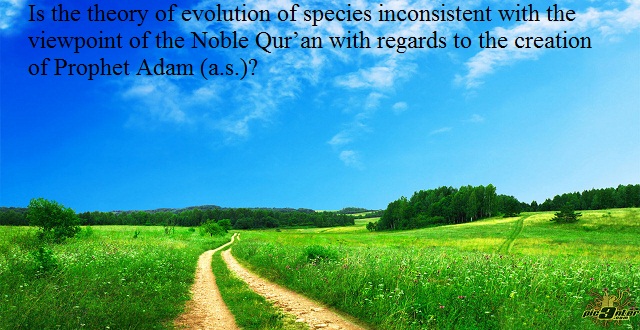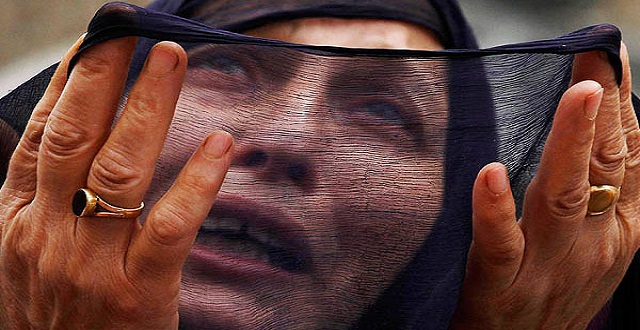
Some of the Sunni brothers, due to the respect and importance attached to the ‘first of the Muhajirs (Emigrants)’ by the Noble Qur’an, have sought to infer that they had not committed any wrongdoing until the end of their lives and so, without exception, all of them ought to be looked upon with great esteem.
They then generalized this issue to include all the ‘companions’ because of Qur’an’s praise for them in connection with the ‘pledge of Ridhwan’ and other events. In practice, without taking into regard the deeds of the companions, they considered all of them to be exceptional humans and refused themselves the permission to indulge in any kind of examination and criticism with respect to their deeds.
One of them, the celebrated commentator and the author of al-Manar, has vociferously attacked the Shi’ites as to why they single out some of the initial Muhajirs for criticism… little realizing the great inconsistency of such beliefs with the spirit of Islam and its history?
Undoubtedly, the companions, especially the initial Muhajirs, possess a special reverence; however, this would only have been until so long as they had continued to tread the correct path and exhibit devotion (towards Islam), but from the day some of the companions deviated from the true path of Islam, the Noble Qur’an would surely view them differently.
For example, how can we ever exonerate Talhah and Zubayr for reneging the pledge and opposing the leader – one, who, apart from the explicit statements of the Noble Prophet (S) attesting his leadership, had been elected by all the Muslims, including themselves? How can we clear them of the deaths of seventeen thousand Muslims, whose blood had been spilled during the Battle of the Camel? If a person were to shed the blood of one innocent person, he would have no excuse to present before Allah, what then to speak of this large multitude!
Basically, is it possible to conceive that ‘Ali (a.s.) and his companions, as well as Talhah, Zubayr and some others of the companions of the Noble Prophet (S) who had teamed up with them, were both on the side of truth in the Battle of the Camel?
Does any logic and intellect accept this manifest contrast? Can we, in the name of ‘inviolability of the companions’ close our eyes, regard them as special personalities and shove the entire history of Islam after the departure of the Noble Prophet (S) into oblivion? And should we flout the Islamic criterion of:
إِنَّ أَکْرَمَکُمْ عِنْدَ اللٌّهِ أَتْـقَاکُمْ
“Verily the most honoured of you in the sight of Allah (s.w.t.) s (he who is) the most righteous of you.”
What kind of irrational and illogical judgement is this?
Basically, does there arise any problem if, one day, a person or persons were to stand in the ranks of the inmates of Paradise and supporters of truth, while on another day in the ranks of the inmates of Hell and opponents of truth? Are all the people infallibles? Have we ourselves not witnessed all these transformations taking place within individuals?
The story of the People of Apostasy – a group of Muslims who had turned apostates after the departure of the Noble Prophet (S) – has been narrated by the Sunnites, as well as the Shi’ites in their books, that the first Caliph initiated a military expedition against them and suppressed their uprising. Had the People of Apostasy not witnessed the Noble Prophet (S) and were they not his companions?
More amazing is the fact that in order to escape from this strange inconsistency some have brought in the pretext of ijtihad (independent reasoning) and state that individuals such as Talhah, Zubayr, Mua’wiyah and their supporters had been mujtahids (religious jurists) and although they had erred in their ijtihad, they had not perpetrated any sin; on the contrary, for these very acts of theirs they shall receive their rewards from Allah!!
Honestly, what a disgraceful logic! Is rebelling against the successor of the Noble Prophet (S), breaking the pledge and shedding the blood of thousands of innocent people – and that too for the purpose of power, rank and wealth – so complex an issue that one is unable to perceive its evils? Does shedding that great measure of innocent blood entitle one to receive rewards from Allah (s.w.t.) ?
If we were to exonerate a group of companions, who had perpetrated offences in such a manner, without any doubt not a single offender would remain in this world, for we would have acquitted all criminals by this logic. Such unstructured defence of the companions would cause Islam to be viewed with great cynicism.
Consequently there lies no alternative except to look upon everyone – especially the companions of the Noble Prophet (S) – with reverence and esteem, however only for so long as they do not deviate from the path of truth, justice and the agenda of Islam!1
Numerous Sunni commentators have reported this tradition from Hamid ibne Ziyad, who says: I approached Muhammad ibne Ka’b al-Quradhi and said to him: What do you have to say in connection with the companions of the Noble Prophet (S)? He replied:
جَمِيْعُ أَصْحَابِ رَسُوْلِ اللهِ فِي الْجَنَّةِ مُحْسِنُهُمْ وَ مُسِيْئُهُمْ.
“All the companions are the inmates of Paradise – the righteous ones as well as the evil ones!”
I said to him: From where do you state such a thing? Whereupon he recited the following verse:
وَ السَّابِقُونَ الأََوَّلُونَ مِنَ الْمُهَاجِرِينَ وَ الأََنْصَارِ وَ الَّذِينَ اتَّبَعُوهُمْ بِإِحْسَانٍ رَضِيَ اللٌّهُ عَنْهُمْ وَ رَضُوا عَنْهُ
“And (as for) the foremost, the first of the Muhajirs and the Ansars, and those who followed them in goodness, Allah is well pleased with them and they are well pleased with Him.”2
And then continued: With respect to the ‘Followers’ there is a condition that they ought to have followed only the righteous deeds of the companions (only in this case would they attain deliverance, but this is not a condition for the companions to attain deliverance).3
However, this claim is unacceptable for several reasons:
The ruling mentioned in the above verse should also be applicable in the case of the ‘followers’, who, as we had alluded previously, are those, who follow in the footsteps of the initial Muhajirs (Emigrants) and Ansar (Helpers). Therefore, the entire ummah, without exception, should be of the delivered ones!
As for the fact that in the tradition of Muhammad ibne Ka’b it has been said that Allah (s.w.t.) has placed a condition of good deeds with regards to the ‘followers’ i.e. they should only follow the righteous deeds and conduct of the companions, and not their sins, this is an amazing statement.
This is because if the condition prescribed for the followers in order to attain deliverance is to follow the righteous deeds of the companions, then it is all the more necessary for this condition to be prescribed for the companions too.
In other words Allah (s.w.t.), in the above verse, says that His pleasure and happiness shall encompass all the initial Muhajirs and Ansar, who were righteous and treaded the correct path, and all those who follow them. The verse does not say that He desires to encompass the Muhajirs and Ansar with His happiness, irrespective of whether they are good or bad, but as for the ‘followers’, He shall accept them only on the basis of that specific condition.
Reason and intellect totally reject this issue; this is because reason does not consider the companions of the Noble Prophet (S) to possess any distinction over the others in this regard. Where lies the difference between the Abu Jahls and those, who initially embraced Islam but later deviated from it?
And why should those, who came into this world years and centuries after the Noble Prophet (S) and whose sacrifices and heroisms were no less than those of the early companions of the Noble Prophet (S), not be eligible for this Divine mercy? Especially since they possessed this distinction that despite not witnessing the Noble Prophet (S), they had accepted him and had brought faith upon him.
How can the Qur’an, which says: Surely the most honourable of you with Allah (s.w.t.) s the one who is the most righteous amongst you, ever approve of such irrational discrimination? How can the Qur’an, which in its various verses, curses the sinners and unjust ones, and regards them as deserving of Allah’s chastisement, approve of this irrational safety of the companions with respect to Divine punishment? Can there be exceptions to these threats and curses of the Qur’an such that a particular group is kept exempted? Why and for what reason?
Apart from these, can such a ruling not be regarded as showing a green light to them to perpetrate any and every kind of sin and offence?
This ruling does not conform with the history of Islam at all, for there have been numerous individuals who once had stood in the ranks of Muhajirs and Ansar, only to later deviate from their paths and find themselves incurring the anger of the Noble Prophet (S) and consequently the wrath of Allah. Have we not heard of how Tha’labah ibne Hatib Ansari deviated and became the object of the Noble Prophet’s (S) anger?
To state this more clearly, if what they have intended is that the companions of the Noble Prophet (S) did not commit any sins, and were pure and infallible from every kind of disobedience and transgression, this is tantamount to rejecting the most obvious and self-evident issues.
And if they meant that the companions did commit offences, but despite this Allah (s.w.t.) s pleased with them, this claim would mean that Allah (s.w.t.) has been pleased with sins!
Who is it that can absolve and acquit Talhah and Zubayr, who initially had been of the special companions of the Noble Prophet (S), and ‘Aishah, his wife, of the death of seventeen thousand Muslims in the Battle of the Camel? Was Allah (s.w.t.) pleased with these killings and blood-shed?
Would opposition to ‘Ali (a.s.), the representative of the Noble Prophet (S) – who, even assuming that he had not been appointed as the Caliph by the Noble Prophet (S), at the very least, had been chosen by the consensus of the ummah – and battling him and his loyal companions be acts that would obtain the pleasure of Allah (s.w.t.) ?
The truth is that the advocates of the notion of inviolability of the companions, by their insistence and emphasis for the issue, have disfigured the pure face of Islam, which has always considered faith and righteous deeds to be the measure for gauging a person’s character.
And finally, the pleasure and happiness of Allah (s.w.t.) that has been mentioned in the verse under discussion is associated with four titles – emigration, assistance, faith and righteous deeds. Thus, as long as all the ‘companions’ and the ‘followers’ adhered to these, they would be the object of Allah’s (s.w.t.) grace, but the day they distanced themselves from these, they also distanced themselves from Allah’s (s.w.t.) pleasure.
From the above discussion it becomes plainly apparent that the statements of the erudite, albeit prejudiced commentator – the author of al-Manar – in which he criticizes the Shi’ites for their lack of belief in the purity and uprightness of all the companions, possess no value and worth. The Shi’ites have not committed any sin save for the fact that they have accepted the rulings of intellect and reason, and the testimonies of the Noble Qur’an and history, and disregarded the unfounded and incorrect distinctions presented by the prejudiced ones.4
——————————————————————
1. Tafsir-e-Namuna, vol. 7, pg. 263
2. Suratul Tawbah (9), Verse 100
3. Tafsirul Manar and the commentary of Fakhr Razi, while discussing the above verse.
4. Tafsir-e-Namuna, vol. 8, pg. 108












